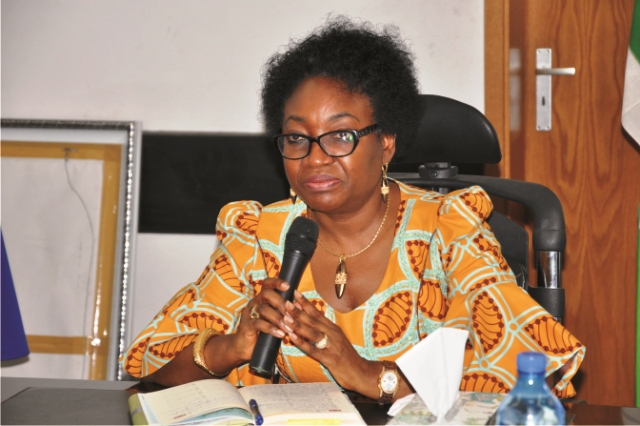Business
FG To Develop Housing Off-Takers Database

The Head of the Civil Ser
vice of the Federation, Mrs Winifred Oyo-Ita, has said that a database of off-takers would be developed for effective housing delivery.
Presenting a paper on ‘Strategic Focus on Off-Taker: A Paradigm Shift in Affordable Housing Delivery in Nigeria’, Oyo-Ita said the objectives of the off-takers would be to guarantee reduction in overall cost of production, delivery time and affordability.
Oyo-Ita, however, decried the challenges faced by workers in affording or accessing housing, stressing that housing is a primary item on the Federal Civil Servants Welfare Index.
She said that profiling and indexing of housing off-takers would determine specific housing needs, the designs, costing and delivery time.
She said the database would serve as a template to provide the profile, background and relevant information of civil servants interested in acquiring houses in relation to their income, number of years in service and grade levels, among others.
According to her, the Federal Government Staff Housing Loans Board (FGSHLB) and Federal Integrated Staff Housing (FISH) Programmes will work together to develop the database for housing off-takers.
“This will help us to know the potential of civil servants in meeting up the third service requirements.
“Many empty houses are high and unaffordable in the country due to lack of proper profiling of off-takers who take over after the construction of houses.
She further underscored the role of the Federal Government Staff Housing Loans Board in empowering federal public servants on mortgage financing and repayment.
According to her, the FISH programme which is an inter-ministerial programme, serves as a vehicle to speed up housing delivery to federal civil servants.
She recalled that the office recently signed a Memorandum of Understanding (MoU) with a partner firm to Shelter Afrique, a Pan African housing finance institution, to boost the FISH programme.
Oyo-Ita noted that the first MoU was signed with the FGSHLB on the development of 1,000 housing units as a pilot phase while another 1,000 houses units would be signed by FISH.
Business
Nigeria’s ETF correction deepens as STANBICETF30, VETGRIF30 see 50% decline in a week

Business
BOI Introduces Business Clinic

Business
Dangote signs $400 mln equipment deal with China’s XCMG to speed up refinery expansion

-
Maritime3 days ago
Nigeria To Pilot Regional Fishing Vessels Register In Gulf Of Guinea —Oyetola
-

 Sports3 days ago
Sports3 days agoGombe-Gara Rejects Chelle $130,000 monthly salary
-
Maritime3 days ago
Customs Declares War Against Narcotics Baron At Idiroko Border
-
Maritime3 days ago
NIMASA,NAF Boost Unmanned Aerial Surveillance For Maritime Security
-

 Sports3 days ago
Sports3 days agoTEAM RIVERS SET TO WIN 4×400 ” MORROW” …Wins Triple jump Silver
-

 Sports3 days ago
Sports3 days agoNPFL Drops To 91st In Global League Rankings
-

 Sports3 days ago
Sports3 days agoNPFL Impose Fines On Kwara United Over Fans Misconduct
-
Maritime3 days ago
NIWA Collaborates ICPC TO Strengthen Integrity, Revenue

